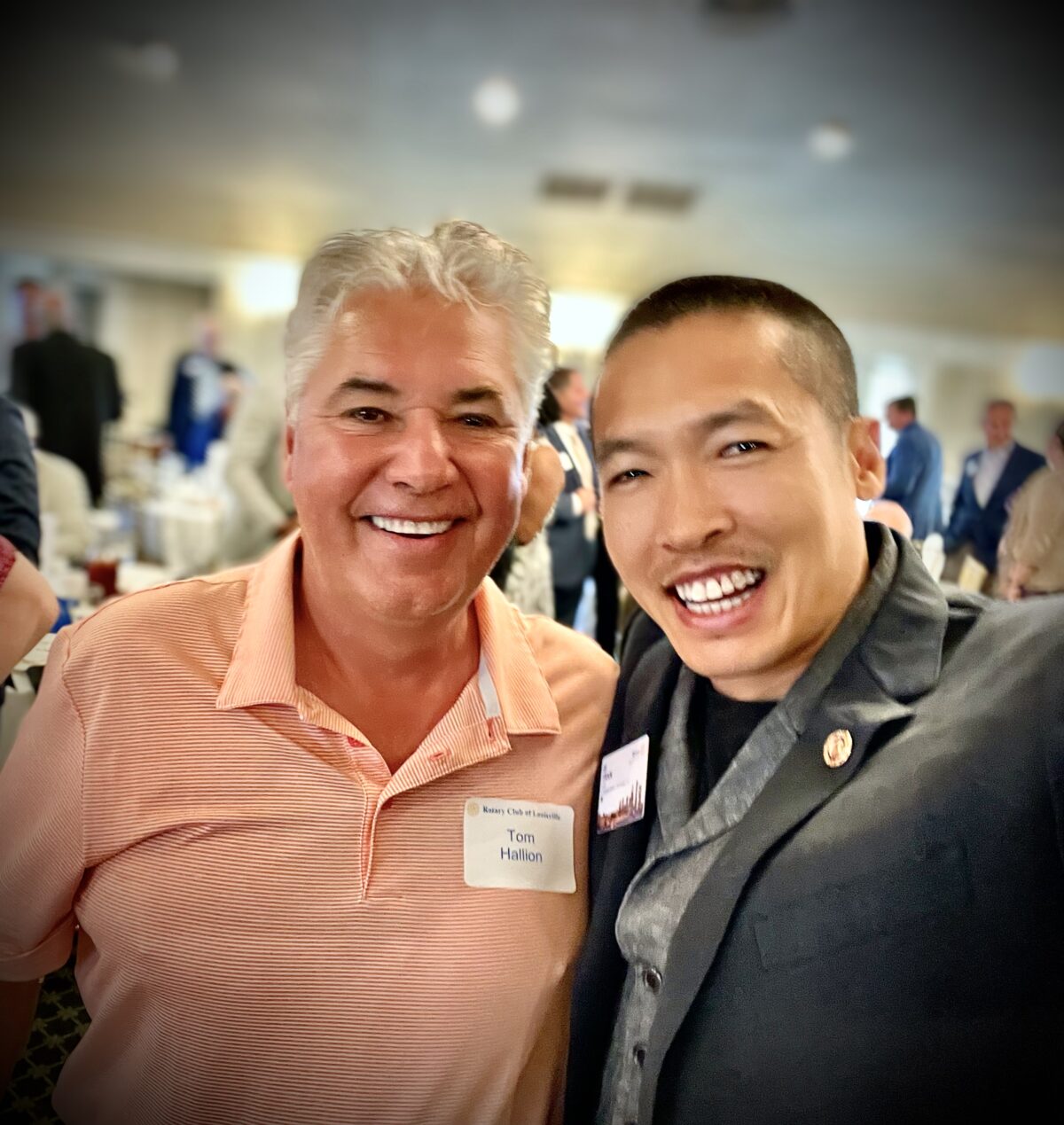Introduction:
On May 25, 2023, at the Woman Club of Louisville, the Rotary Club of Louisville hosted a special meeting featuring a distinguished guest speaker: Tom Hallion, a renowned Major League Baseball umpire. Among the attendees was Di Tran, CEO of several small businesses, including the Louisville Beauty Academy, Louisville Institute of Technology, and MiaHire.US. As an almost 30-year immigrant to the United States, Di Tran had little exposure to baseball, making this encounter with Tom Hallion a significant learning experience.
The National Pastime and Tom Hallion’s Legacy:
Baseball, often hailed as the national pastime in America, carries deep cultural significance within the country. With its roots tracing back to the mid-19th century, baseball has become synonymous with teamwork, competition, and fair play. As Di Tran engaged with Tom Hallion, he discovered the sport’s rich history and its connection to American values.
Tom Hallion, an esteemed MLB umpire, boasts an illustrious career and is widely respected within the baseball community. Known for his competitive nature and winning mentality, Hallion has officiated numerous high-profile games, including World Series and All-Star Games. Even at his current stage in life, Hallion’s energy and dedication remain as vibrant as ever.
The Impactful Statement on Family:
During the Rotary Club meeting, Tom Hallion shared a poignant and relatable sentiment about the role of family in his life and career. Reflecting on his journey from the minor leagues to the big leagues and back, he acknowledged the unwavering support of his loved ones. Hallion emphasized the significance of his family’s presence during both the highs and lows of his umpiring career.
As Hallion spoke about his emotional connection to family, Di Tran experienced a powerful moment of resonance. The umpire’s admission that his wife and children stood by him during difficult times struck a chord with Di Tran’s own journey as an immigrant entrepreneur. It highlighted the importance of having a strong support system during challenging moments.
A Touching Tribute to Wives:
Tom Hallion took a moment to acknowledge and appreciate the often overlooked contributions of wives in the lives of umpires and, by extension, all individuals pursuing their passions. He expressed admiration for the unwavering dedication and support his wife and countless other wives provide, acknowledging the sacrifices they make behind the scenes.
For Di Tran, this tribute resonated deeply, prompting him to applaud along with the rest of the crowd. It served as a reminder of the often underappreciated role that spouses play in the pursuit of dreams and goals. Di Tran was moved by Hallion’s genuine and heartfelt expression of gratitude towards these unsung heroes.
Conclusion:
The meeting between Di Tran, CEO of various small businesses, and renowned MLB umpire Tom Hallion at the Woman Club of Louisville proved to be an eye-opening experience. As a newcomer to baseball, Di Tran was introduced to the sport’s cultural significance and gained insights into Tom Hallion’s accomplished career. Hallion’s emphasis on the importance of family and his heartfelt tribute to spouses left a lasting impression on Di Tran, serving as a poignant reminder of the support required to navigate life’s ups and downs.



















